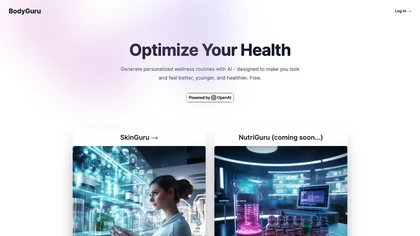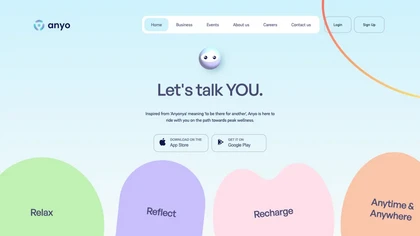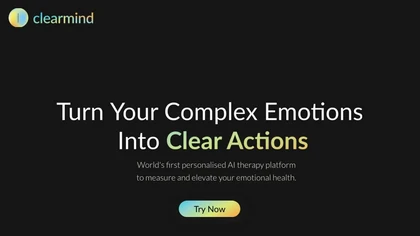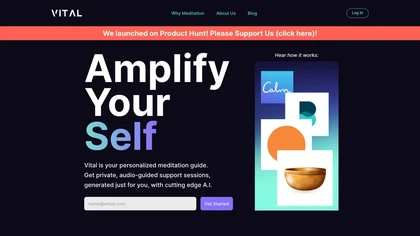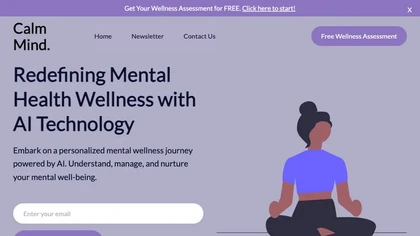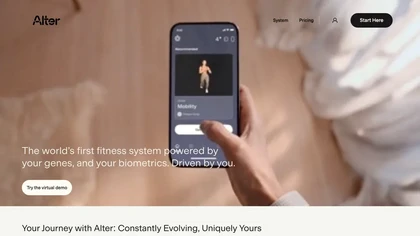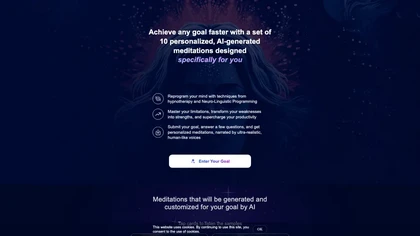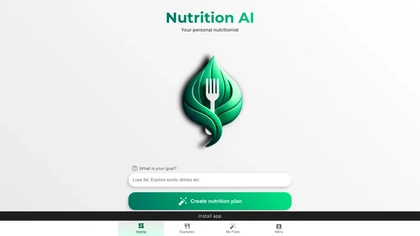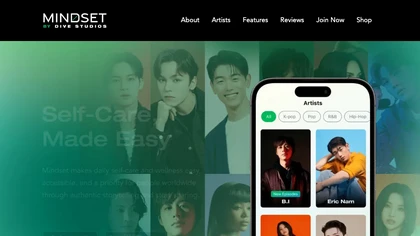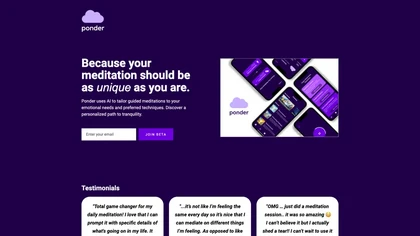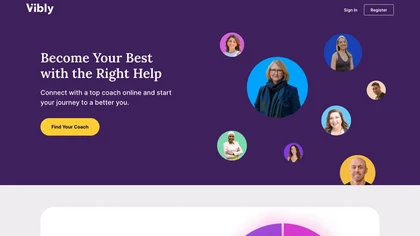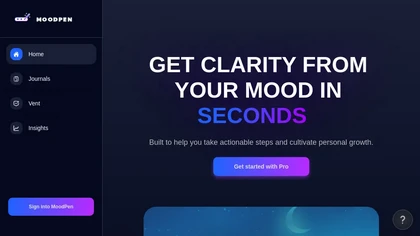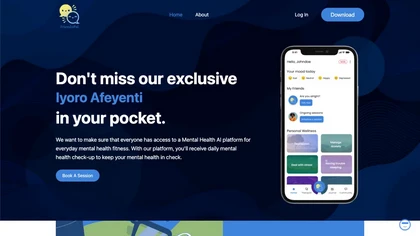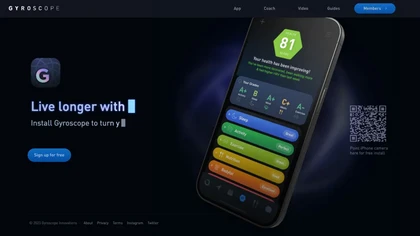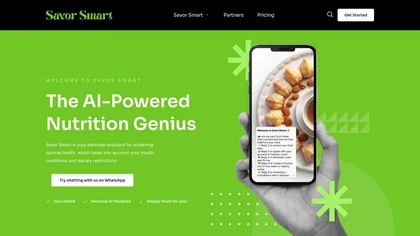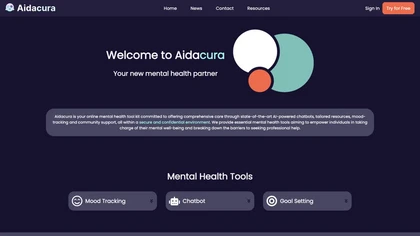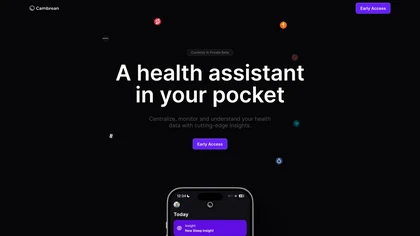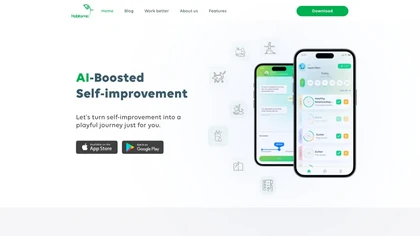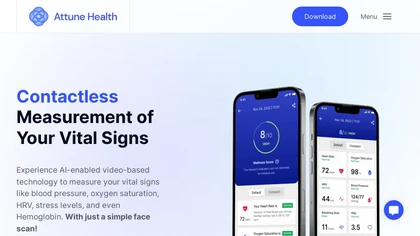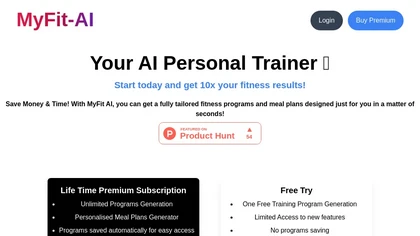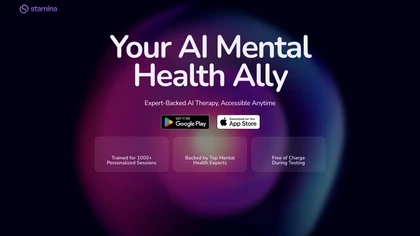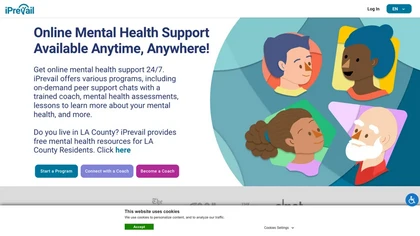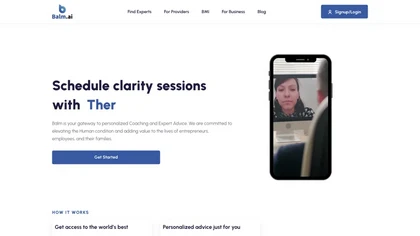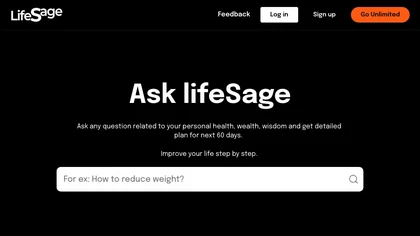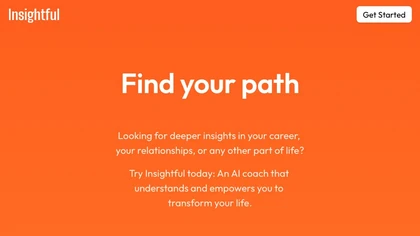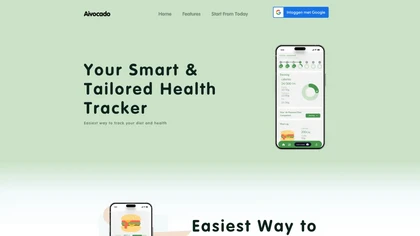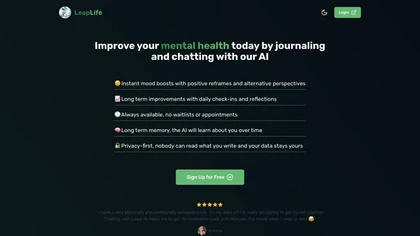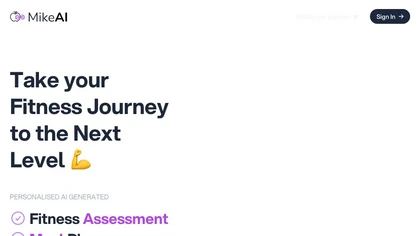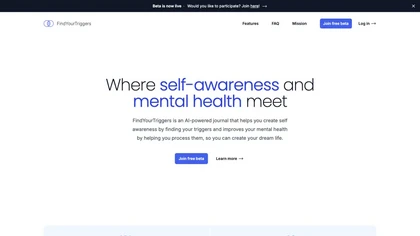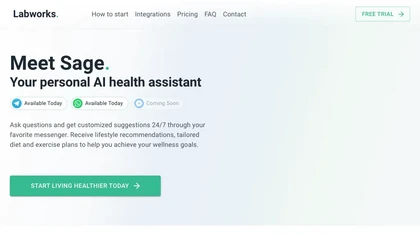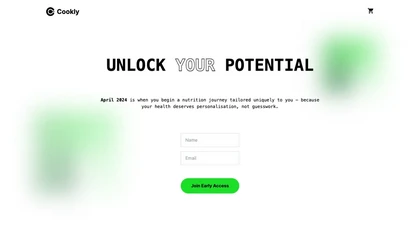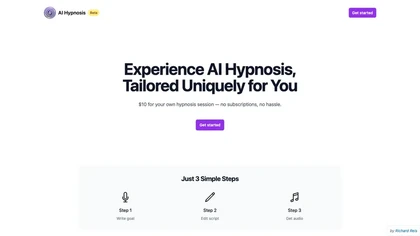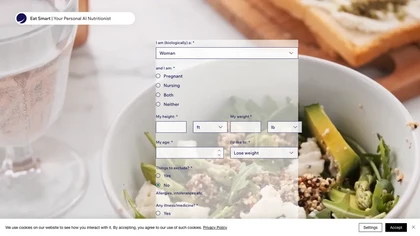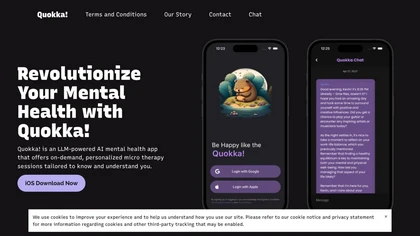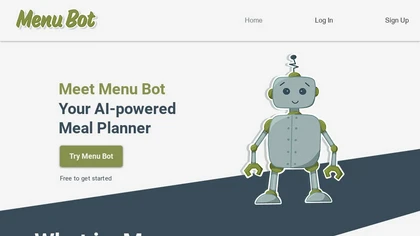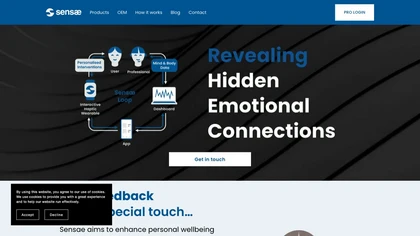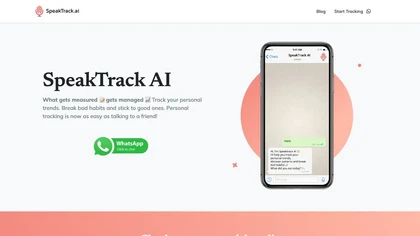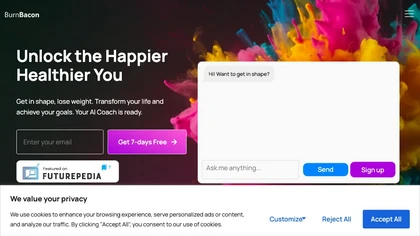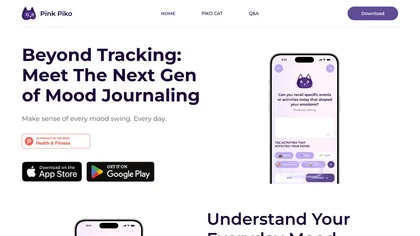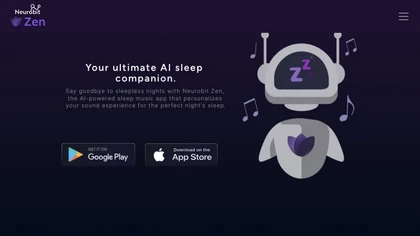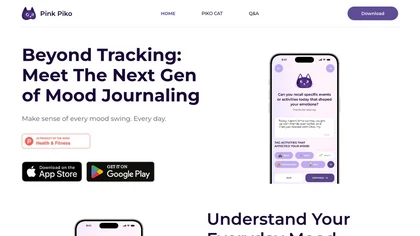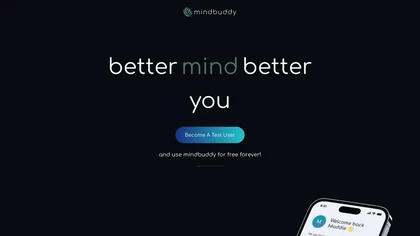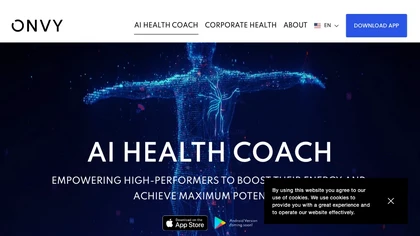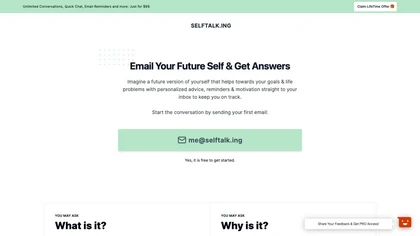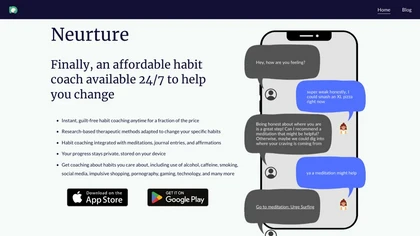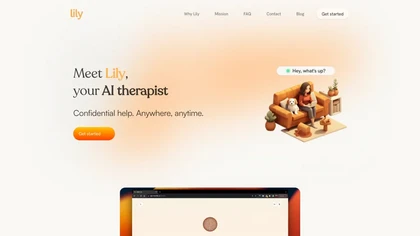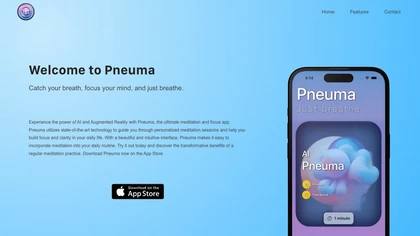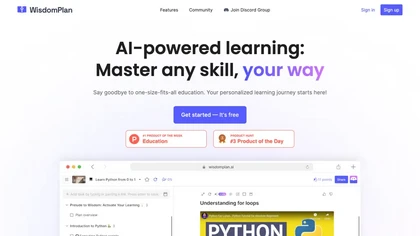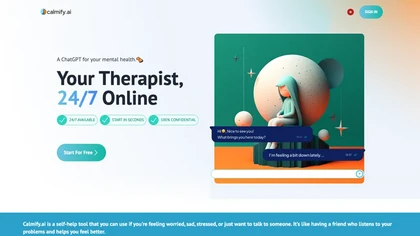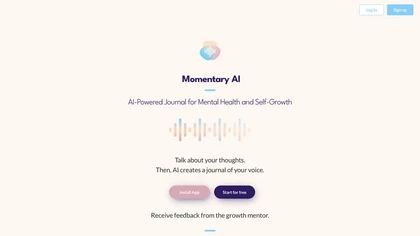AI use cases for Self-care
Generative AI can be applied in various applications for self-care. Here are some examples to explore below for inspiration with AI tools to get you started with using AI in self-care.
🛠️ 70 AI tools for Self-care
Explore a dynamic list of some of the most popular tools to get you started with various AI use cases and applications for Self-care to streamline your workflows and productivity today.
Well Me Right features
- AI matching and Health Coach capabilities
- Personalized coaching
- Dietary tracking, nutritional guidance
- Guided meditation sessions
- Adaptive health partner
BodyGuru features
- Personalized wellness routines generation
- Tailored recommendations
- Free platform
- Upcoming features integration
- Developed by JBBAE
Anyo features
- Personalized self-care activities
- Resilience building through Carebox
- Real-time connections with listeners
- Seamless booking of therapist appointments
- High-quality content in yoga, psychology, meditation
Clearmind features
- To-Do lists
- Mood cards
- Meditation scripts
- Chat
Vital features
- Personalized audio-guided sessions
- Selection of eight specific meditation techniques
- Six different AI meditation coaches
- Automated email guidance
- Community building through practice comparisons and point system
CalmMind features
- Wellness assessment
- Calmmind chat
- Curated wellness programs
- Therabot
- Community support
Alter features
- Genetic trait analysis
- Personalized fitness plans
- Stress monitoring
- Nutrition guidance based on DNA
- Access to top-tier coaches and wellness advisor
🔥
Create your account, save tools & get personal recommendations
Receive a weekly digest of our handpicked top tools.
Unsubscribe anytime
Centenarian features
- Personalized sleep coaching
- One-on-one chat with ai sleep coach supercentenarian
- Track biometrics, environment, and progress
- Reminders and recommendations based on ai analysis of sleep data
Neomind features
- Personalized meditations generated by AI
- Utilizes hypnotherapy and neuro-linguistic programming techniques
- Customization based on user's specific goal and needs
- Narrated by ultra-realistic, human-like voices
- Accompanied by a 53-page workbook with science-backed exercises and NLP techniques
NutritionAI features
- Customized nutrition plans creation
- Tailored meal plans examples
- Focus on privacy and user control
- Installation at home
- Platform login feature for support and queries
Mood AI by Mindset features
- Daily check-ins
- Daily reflections
- Expert advice
- Daily quotes
Ponder features
- Tailoring guided meditations to emotional needs
- Personalizing meditations based on current emotions and situation
- Offering flexible meditation options
- Providing structured courses for meditation
- Adapting to support the user's self-discovery and growth journey
Vibly features
- AI matching algorithm
- Personalized coach recommendations
- Tailored coaching experience
- Evidence-based techniques
- Convenient online coaching sessions
MoodPen features
- Real-time reflection
- Personal growth tracking
- Automated journal reflections
- Personalized feedback and suggested actionable steps
- Multi-lingual support
FriendnPal features
- virtual one-on-one chats with therapists
- supports various African languages
- booking therapy sessions online
- ASMR sounds for relaxation and stress relief
- digital journal for mood tracking
Gyroscope features
- Personalized guidance
- Video guides
- Tracking tools
- Insights through reports
- Custom workouts
Savor Smart features
- Personalized meal plans
- Consideration of health conditions and dietary restrictions
- Chatbot integration on WhatsApp
- Blood sugar control and weight loss support
- Contextual reminders throughout the day
Aidacura features
- AI-powered chatbots
- Tailored resources
- Mood-tracking
- Community support
- Natural language processing
Cambrean (Beta) features
- Centralized platform for health data monitoring and analysis
- Focus on sleep, nutrition, workouts, and vitals
- Continuous health analysis capabilities
- Data synchronization for powerful insights
- Analyzing and contextualizing health metrics for informed decisions
Habitomic features
- Personal Assistant Chatbot (Mana)
- Pool of Habits & Mini habits customization
- Life-Changing Insights and Peer Introductions
- Sharp Habit Scheduler with personalized reminders
- Insightful Habit Analyzer with streak tracking and achievements
Attune health features
- Vital sign measurement
- Contactless experience
- Real-time measurements
- Wellness tracking
- Corporate wellness
MyFit AI features
- Program generation
- Meal plan generation
- Saving programs
- Input personal data
Stamina AI features
- Expert-backed AI therapy tool
- Over 1000 personalized sessions
- Cognitive behavioral therapy techniques
- 24/7 availability
- Personalized support from a team of 200+ mental health professionals
iprevail.com features
- Personalized wellness programs
- User-friendly interface
- Self-help modules
- Therapy sessions
- AI algorithms for progress tracking
Balm.ai features
- Personalized coaching
- Access to top experts
- 1-on-1 virtual sessions
- Tailored advice
- Convenient expert connection
Lifesage features
- Health
- Wealth
- Wisdom
- Personal development
- Self-improvement
Mymealplan features
- Generates personalized meal plans
- Curates a list of the best recipes from the web
- Easy-to-use app
- Caters to various dietary preferences
- Provides grocery list for easy shopping
Insightful features
- Provide personalized on-demand coaching
- Focus on specific needs
- Available anytime, anywhere
- Blog with latest insights on living a fulfilling life
- Accountability coaching to help young professionals reach full potential
AIvocado features
- Food image recognition
- Nutrition analysis
- Personalized tracking
- AI diet assistant
- Long-term diet tracking
MealMate
5MealMate features
- Plan meals
- Tailor dietary preferences
- Consider budget
- Adjust for time constraints
TasteBuddy features
- Personalized meal plan generation based on individual tastes and goals
- Dietary preference input for designing tailored meal plans
- One-click grocery shopping integration with Amazon Fresh
- Calorie tracking with magic links setup for tracking macros
- Dynamic plan adjustments for changing dietary needs and preferences
LeapLife features
- AI chat function
- Personalized chatting AI
- Daily journaling
- AI therapists chat
- End-to-end encryption
AI Meal Planner features
- Generates personalized meal and workout plans
- Includes fitness chatbot support
- Provides recipes
- Tailored to user's goals and needs
- Pricing options available
Dr. FeelGood features
- Personal AI motivational coach
- Human-like understanding
- Powerful motivational capabilities
- Available 24/7
- Coaching sessions anytime needed
FindYourTriggers features
- AI-powered journal
- Generates prompts based on user input
- Tracks user moods
- Identifies and processes behavior triggers
- Supports a structured three-step plan of assessment, planning, and implementing
Sage features
- Personalized health advice
- Meal planning
- Customized exercise recommendations
- Tracking daily activities
- Monitoring progress
BodyCompAI features
- Personalized nutrition and workout plans
- Analysis of unique body type from a photo
- Crafting workout plans for strength and fitness enhancement
- Tailored nutrition advice with custom meal plans
- Advanced workout analysis for personalized plans
Cookly features
- Personalized nutrition guidance
- Real-time macro tracking
- Food recommendations based on user preferences and goals
- Dynamic macro tracking
- Advanced AI-powered algorithms
Gala Coach features
- Personalized profile creation
- Daily support and motivation
- Smart tracking features
- Tailored guidance
- Interactive nutrition lessons
AI Hypnosis App features
- Customized hypnosis sessions tailored to individual goals
- Ability to input goals and edit scripts for personalized audio files
- Utilizes OpenAI Elevenlabs for audio generation
- Secure transactions through leading financial service Stripe
- No subscriptions, just a one-time payment for tailored sessions
Eat Smart features
- Personalized diet plans
- Customization based on weight, height, age, and weight loss goals
- Consideration of country of residence for local cuisines
- Biologically relevant dietary recommendations
- Free AI tool
Quokka! features
- Personalized micro therapy sessions
- 24/7 access to affordable AI-powered therapists
- Truly personalized chat experience with a GPT-4-powered AI therapist
- Exploring deep dive features for gaining insights and advice on specific mental health topics
- Using HRV data from biometrics like the Apple Watch to interpret mood changes over time
Soula Care features
- Personalized AI-based chatbot
- Evidence-based and structured content
- Holistic pregnancy planner and tracker
- Mental health support
- Access to top experts in the field
Menubot features
MealPlanner features
- Personalized meal planning
- Tailored meal plans based on dietary restrictions
- Customized meal plans based on personal taste and preference
- In-app shopping list feature
- Step-by-step cooking instructions
EpicTopia AI features
- Life journey tracking
- AI-generated insights
- Tailored action plans
- Personalized chronicle on a timeline
- Detailed guidance
Sensae Loop features
- AI-driven analytics
- Haptic biofeedback
- Physiological and emotional state monitoring
- Stress assessment
- Modular and customizable solutions
Speaktrackai features
- Voice message input for tracking various aspects of daily life
- Privacy focus with no data selling or targeted ads usage
- No app installation or sign-up required
- Actionable insights for informed decision-making
- Convenience and intelligence through AI-powered tracking and analysis
Nutrition Assistant features
- dietary advice support
- intolerance support
- recipe suggestions
- nutritional goal assistance
- personalized nutrition guidance
BurnBacon features
- Workout plans
- Customized meal suggestions
- Motivational support
- Fitness guidance
- Data-driven solutions
6000 thoughts features
- Organize thoughts
- Clarify thinking
- Identify biases
- Achieve breakthroughs
- Self-reflection
Food Shell AI features
- nutrition information analysis based meal photos
- calories tracking
- personalized recommendations
- photo food logging
- OpenAI GPT-vision technology
Pink Piko features
- Interactive tracking experience
- Insightful questions for emotional reflection
- AI-powered technology for interpreting mood logs
- Personalized emotional insights
- Transforms emotional data into tangible insights
Neurobit features
- Personalizes sound experience
- Curated selection of relaxing audio
- Artificial intelligence to generate audios
- Customizable options
- Promotes calmness
Workout Tools features
- Personalized workout sessions
- Tailored workout plans
- Adapts to available equipment
- Extensive database of exercises
- Customized training experience
PinkPiko features
- Mood tracking
- Interactive experience
- Insightful questions
- Personalized emotional insights
- Actionable insights
mindbuddy app features
- Specially trained chatbot 'buddy'
- Specialization in cognitive behavioral therapy (CBT)
- Personalized guidance through AI
- Track mood and access past chat sessions
- Continuous learning and adaptation capabilities
ONVY features
- Track daily activities
- Receive personalized guidance on sleep, fitness, and stress management
- Offers a monthly health report
- Connects to 300+ fitness trackers
- Ensures data privacy through gdpr compliance
Selftalk.ing
4.9Selftalk.ing features
- Unlimited conversations with future self
- Quick chat interface
- Email reminders
- Personalized advice and motivation
- Access to past conversations
Neurture features
- Affordable habit coaching
- 24/7 availability
- Utilizes research-based therapeutic methods
- Integrated with meditations, journal entries, and affirmations
- Allows digitization of handwritten journal entries
Lily features
- Voice-activated AI
- Personalized guidance for mental health
- Support for anxiety, stress, self-esteem
- Digital wellness guide
- Privacy and tailored support
Mealmind features
- Generate personalized meal plans
- Interactive shopping lists
- Tailored to individual dietary requirements
- Food preferences
- Fitness goals
- Simplify grocery shopping
- Provide step-by-step instructions for cooking
- Variety of diets
FoodZilla.io features
- Recipe builder
- Meal planning system
- Nutrition reports
- Mobile app
- Secure messaging
A.I Meal Planner features
- Generate personalized monthly meal plans
- Access pre-designed low fodmap meal plans including free 3-day and 7-day plan
- Consider specific dietary needs to create customized meal plans
- Provide information on gut health and assist users in leading a healthy lifestyle
- Offer a variety of low fodmap recipes created by an ai chef
Faitness features
- Personalized fitness plans
- AI-powered workout plan generator
- Utilizes GPT models for routine creation
- Adapts to equipment availability and fitness levels
- Focus on safety and effectiveness
ZeoFit features
- telegram access
- personalized workout plans
- nutrition plans
Pneuma features
- Augmented reality integration
- Personalized meditation sessions
- State-of-the-art technology
- Intuitive interface
- Guided breathing exercises
WisdomPlan features
- Personalized learning journeys
- Intelligent planning capabilities
- Centralized management of courses, documents, and webpages
- Task organization and progress tracking
- Community interaction for sharing plans and experiences
calmify.ai features
- AI-powered mental health companion
- 24/7 online support
- Personalized and empathetic assistance
- Employing evidence-based cognitive behavioral therapy (CBT) strategies
- Uses state-of-the-art large language models (LLMs)
Momentary features
- AI-powered journaling experience
- Voice-activated journaling
- AI-powered transcribing
- Mood categorization
- Supportive AI mentor

